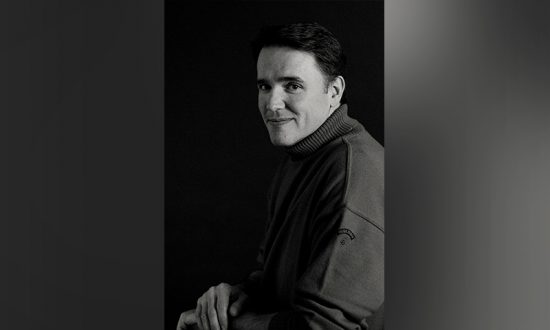Prof. Dirk Daenen lectures at universities around the world, including the University of Luxembourg, UBI-Middlesex University, Vietnam National University & Tongji University in China. He has given workshops at the European Parliament and Commission and assists a range of companies and people on public speaking. Dirk’s true passion is TED Talks. Dirk hosted his first TEDx event 7 years ago and is now curator and organizer for TEDxLuxembourgCity
A few weeks ago, I was forced to cancel an event with an anticipated 1200 attendees. Prior to this cancellation, TEDxLuxembourgCity had been going from strength to strength and we had wonderful and eclectic plans to spread ideas for this June event. While the cancellation was certainly a financial problem it was moreover emotionally heart-breaking!
My journey with TEDx started 7 years ago when I was asked to host an event for a local university. Since then I have had the privilege of organizing TEDx events for my university and then Luxembourg’s own capital city event. The events grew from less than 100 people to over 1000 people. Each event to date has sold out… but then the pandemic outbreak happened, and the lockdown started. No social gatherings were permitted.
We started our research as a team. Fortunately, the broader TEDx community around the world are incredibly inspirational, where ideas thrive and are encouraged as “Ideas Worth Spreading”. We concluded we had two main challenges: 1) is there an alternative and acceptable virtual format to best spread ideas and 2) is it financially viable?
The Virtual Format
With live gatherings forbidden, we investigated virtual formats, so our first decision was choosing between ‘long-form’ or ‘short-form’ digital programming. We did some research and found ‘screen fatigue’ to be one of the most significant problems and would have to be a primary concern for us. TED’s 2020 event, which was due to take place in April, has moved from the typical conference hall, 12 sessions over 5 days to a virtual event of short-form programming over 12-weeks. We are excited to see how that goes but it seems to be clear that short-form digital programming is the way forward.
So, what is short-form programming? We decided between five types of talks. The most obvious way forward is ‘talking to camera’, and while this clearly works, we found viewer screen fatigue to be most prevalent here. The ‘interview’ works well and the banter between interviewer and interviewee keeps the audience engaged for longer; it further takes the stress away from the speakers. ‘Demonstrations’ are now also possible because we aren’t stuck to a stage and our speakers can be somewhere that they can show the audience what they mean. Closely linked is the ‘performance’, where artists do not talk, they perform. Finally, we had the ‘interactive streaming session’ which is mostly live streaming but also streaming of a pre-recorded talk. The fact that the audience can engage with each other during the transmission makes it very engaging, and if a ‘live’ stream questions and answers are possible.
We decided on two virtual formats to engage our audience. Our interview format is called TEDxLuxembourgCity presents: “Coffee with…”. We contacted former speakers and interviewed them concerning the current situation. Our second format is TED Circles hosted by TEDxLuxembourgCity where strangers can log in to watch a TED talk together and then debate it for an hour. They are both working very well.
Financial Viability
The cost was definitely a consideration for our choices. TED Circles was affordable as the only cost was the license of the virtual meeting software. The interviews, however, are far more production heavy. None of the team members was video producers so with a lack of in-house skill we needed to engage a video production company to produce the videos. Clearly TEDx talks are all recorded, and we have worked with a great team that are comparatively affordable and know what we are looking for when filming an event.
Physical events are very transparent. We raise funds through ticket sales and sponsorship. Depending on how successful we have been, we adjusted the attendee experience accordingly. For example, while we always offer food and drink to our audience, if we can raise enough funding, we provide exceptional food and drink, but if we fall slightly short the food and drink may be quite basic. Our first events had university students preparing sandwiches for our audience, but our latter events had incredible caterers provide truly exceptional food and beverage. In the case of a virtual event, our research has not shown a successful practice of ‘ticket sales’. There are so many online experiences that are free to the audience (advertising-driven) that it seems odd to charge for tickets.
So, if we can’t sell tickets the financial viability is exclusively down to sponsors. Pandemic lockdowns affect everyone at the same time and we found that our sponsors are also looking for new and exciting ways to reach out to the clients and partners. Sponsors are very interested in what we are planning, however, this is new to them also and, while there is a clear market value to sponsor physical events, these new types of virtual events are still establishing an equilibrium.
The TEDxLuxembourgCity team are super excited about this new dynamic. While we are still trying to figure out what we are doing and how to afford it, we recognize that virtual events can reach new audiences and can be very timely. We don’t just engage our audience in one day, but potentially all year. I hope our experience can help you decide how to navigate your events. Feel free to reach out and share your experiences too.






